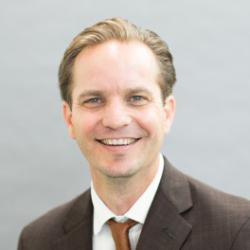
On March 29, Carl Anderson’s A Civilization of Love (HarperOne, 2008) first appeared on the New York Times Best Seller list as one of hottest-selling books in America among the “Hard Cover Advice” category. Since then the author has been on an energetic European and American tour to promote his book. In just 200 pages, Anderson writes convincingly to elaborate a treatise to dispel dominant secular ideologies whose ethical frameworks falsely aim at human fulfillment and forming good and just societies.
The author is Supreme Knight of the Knights of Columbus, the world’s largest Catholic fraternal society, and CEO of its top-rated life insurance company. Anderson brings to his writing a vast amount of practical experience tactfully combined with the rudiments of Catholic philosophy and theology to elucidate his philosophy of love and goodness.
Anderson’s first task is to enlighten his readers on the very meaning of love. He author dedicates his first few chapters to explain that a culture of love is not simply about encouraging romance; and in no way does a culture of love echo the loose liberal ideas behind the hedonistic behavior so vigorously idealized in Western society since the late 1960s. A culture of love is, rather, about self-responsibility, self-denial, hard work, unconditional generosity and steadfast dedication.
And yet, there is something more to love, at least in the Christian sense: Anderson’s primary axiom is that a civilization characterized by love is, above all, one which is rooted in the love of God and is ultimately other-directed. To make his point clear, Anderson spins Descartes’ fundamental existential premise “I think therefore I am” to reveal a deeper insight about man and his relationships: “‘I love therefore I am.’ Or perhaps even more profoundly: ‘I have been first loved, therefore I am.’” Anderson goes on to say that “Divine love implies an other…. Love involves (at least) two persons, two selves.” (chap. 3 “Craftsman of a New Humanity”, pp.35, 37).
Anderson’s second point is that love is marked by the freedom to act and to give; yet it involves a personal liberty which often challenges our spontaneous preferences and natural inclinations for comfort, company and security. “[Freedom] cannot be lived in isolation, that is, unhinged from other values such as equality and human dignity.” (chap. 1, “The Power of Christ to Transform Culture”, p. 10).
Carl Anderson colorfully speaks of Mother Teresa’s little known struggles while experiencing her own “dark night of the soul” in caring for lepers, drug addicts and AIDS victims in the streets of Calcutta.. Certainly not every day, he explains, was Mother Teresa rewarded with the joy of having improved the well-being of India’s most destitute citizens. Many days were, in fact, quite routine and so physically exerting on her body, that it would be very wrong to speak of any “good feelings” that resulted from her unconditional acts of charity. And yet “throughout her ministry she persevered and did not begrudge her work.” (chap. 4 “A Dignity That Brings Demands, p. 61)
Anderson believes that promoting human responsibility, based on personal acts self-giving and firmly rooted in imitating God’s law and love for his creatures, is the only way to make a culture a civilized one. The end result – as Anderson hopes – will be that human society bows ever the less to man-made social agendas and their accompanying large impersonal governmental agencies. As he writes: “Social engineering, even if well-intended, cannot in itself create a just society. Just society must arise out of the hearts and minds of those that live in it. If the precepts that Leo [XIII] proposed [in the 1891 social encyclical Rerum Novarum] – which are, after all, specific applications of natural law – were voluntarily obeyed by all people, the need for complicated laws and governments would be greatly reduced.” (chap. 6 “Globalization and the Gospel of Work”, p. 91.)
Carl Anderson gives good reasons to not rely on state welfare as a norm to provide loving care for the nation’s poor. He cites the millions of volunteer hours and financial support which Americans still give to private charities, including impressive contributions from his own Knights of Columbus councils. Yet, despite the inspiring statistics, Anderson warns his readers of seeking the opposite solution to welfare provision with the words of Benedict XVI: “If men have nothing more to expect than what the world offers them, and if they may and must demand all this from the state, they destroy their own selves and every human society.” (p. chap. 1 “The Power of Christ to Transform Culture”, p. 10).
Lastly, Carl Anderson gives perhaps his best example of how modern society may end up, by recounting the personal experiences of Czech playwright and former president, Vaclav Havel. After undergoing decades of forced social engineering, where the very fundamentals of human love and trust all but vanished from Czech society, Havel confesses: “The worst thing is that we lived in a contaminated environment….We learned not to believe anything, to ignore each other, to care only for ourselves. Concepts such as love, compassion, humility, and forgiveness lost their depths and dimensions. The previous regime…reduced man to a force of production and nature to a tool of production.” (chap 7, Ethics in the Marketplace, p. 109).
Carl Anderson’s book brings to light many pressing social issues affecting most modern nations. But unlike many philosophical works, Anderson provides a cause and a solution sustained by real-life examples and their consequences. I would highly recommend reading A Civilization of Love to reinforce many of the same principles promoted by the Acton Institute.

